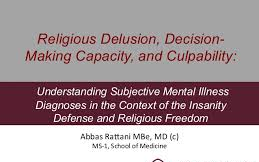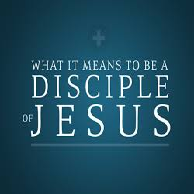
Authentic christian leadership
Order Instructions:
You will submit 9-page paper during this course that contain a personal analysis pertaining to the various leadership audits stemming from the Malphurs textbook readings. Each paper must contain a 1-page introduction, 1 page per audit, and a 1-page conclusion describing 2 personal action points stemming from the analysis. A current Turabian style title page, pagination, footnotes, and bibliography are also required.
Module/Week 4 includes the following audits:
Christian Leader: p. 173
Servant Leader: p. 180
Credibility: p. 182
Spiritual Gifts: p. 184
Natural Gifts: p. 191
Passion: p. 193
Character Audit (men/women): pp. 195/198
SAMPLE ANSWER
Introduction
The term audit is often used in or within the context of an in-depth financial investigation. In its more common occurrence it usually take a significant period of time where the investigation is done following a predetermined pattern. The main aim in a financial audit is to see if the custodians of an organization’s resources. The basis of the audit is usually the comparison between the standards that have been set and the actual performance on the ground. A leadership audit is based on similar principles since this involves the assessment and appraisal of an individual’s leadership capabilities and qualities. Leadership is of course the ability to lead people who are in one form of organization or another. The concept of leadership is abstract unlike financial record keeping which will be done through the comparison of numerical values. The abstract nature of leadership means that there is a degree of flexibility in its analysis. Usually the concerned parties conduct a leadership audit based on an already existent value system, specifically the relevant aspects of the value system. Another unique aspect about a leadership audit that separates it from the conventional audit is the fact that it is best carried out retrospectively since an individual is best placed to judge his or her collection of attitudes, strengths and weaknesses relevant to their ability to lead. Leadership audits can therefore be based on[1] religious principles, legal principles or ethics that apply in a given area of human interest such as academia,politics or other career areas. A leadership audit is an invaluable tool when there is an impending strategic change around the corner. This is because it provides a logical and accurate pointer about the capacity an existent leader has, something that can be compared to the challenge or task ahead. Leadership audits are not done to determine whether change will take place or not. On the contrary they are done so that individual leaders know exactly where they are so that they figure out what to be more alert about, which areas they need to urgently improve and also the strengths they can capitalize on. This exercise details a leadership audit that I am conducting on myself based on principles of Christian leadership as discussed in the course.
Christian Leadership
Christian leadership is basically the tendency or ability of a leader to exemplify christian principles through his or her leadership. As a christian leader myself, the values that are manifested in the depiction of various leaders in the Bible need to be clearly seen in the way I carry out my responsibilities as a leader. I scored 15 in this area, indicating that I am above average with regard to being a Christian leader. Christian leadership for me is layered and it first of all begins with who I am as a person, secondly it is manifested in my professional life and ethics, third, Christian leadership needs to be very clear in the way I interact with other people in the workplace, mainly those who are my subordinates.
As an individual I need to be completely blameless without having any possible blame or issue that would bring me into disrepute. This is a case of the proverbial ‘putting my house in order.’ To the best of my knowledge I believe I have no problems in as far as my personal life goes. I live my life based on christian principles and this means that I hold firmly to honesty, sensitivity and also affirmatives. The one area that I however feel I need to work on is that of being steadfast when it comes to moral dilemmas in the wake of public pressure. My spiritual convictions mean I have to make decisions that stay on the ‘straight and narrow.’ I always work to ensure my obedience to scripture is based on my fear of God and not a fear of fellow human beings. This keeps me accountable even in private.
As a worker I always strive to ensure that I am following the rules that the organization has set. This way I show those who have been placed under my leadership a proper example and also show them that I have faith in the rules. Being transparent also key to my christian leadership since it shows that I have nothing to hide and this helps to create an environment of transparency. Being transparent also keeps me alert and more accountable for my actions[2].
Servant Leader
The concept of servant leadership was best exemplified by Jesus as he established his ministry here on earth two millennia ago. The term servant-leadership is somewhat of a moron given the fact that leaders are often the ones being served in society. Jesus’ best illustration of being a servant leader was when he washed the feet of his disciples, something that would be taken as the severe lowering of the status that a leader has relative to the members of the group. In this area I scored 12 and that is indicative that I am doing well in the area of servant leadership. For me servant leadership refers to looking for ways where I can serve those I am leading and add value to their lives instead of merely issue instructions.
The desire to offer service is something that I have had for a long time and it enables me to have the initiative to make things better wherever I am. As a result, I find myself having an urge to lead so that I can make things better for everybody involved whether it is in an informal setting or a formal one.
In the instances that I have been in a position of leadership, I strove to ensure that the needs of the major stakeholders are clear and well known. Once this is done, I had to weigh the different needs and give priority to the ones that were most pressing. This necessitates the need for dialogue and compromise since there is the ever present reality of needs clashing. Some of these needs are my own and as a servant I need to keep them aside for the sake of the greater good. I have noted that I tend to achieve greater success in instances where I keep personal interests aside. I think this is because in such a situation I have a much clearer focus on the people that I am working with. I have the capability to better leverage on the strengths of my subordinates and also be sensitive about the challenges they have. I also don’t have any qualms about working alongside those I am leading since this is how I get an opportunity to demonstrate to them specifics about their tasks. If they have any challenges that are specific to their responsibilities, I will easily pick up on them and work towards a way forward[3].
Credibility
Being credible is basically being believable from the perspective of others. Gaining the trust of people is not something automatic. It is more of a journey whereby the level of trust gradually increases. I say this because I also tend to be skeptical of people I don’t know and it takes some considerable amount of time before I can trust them. I scored 17 in credibility, a sign that this aspect of my leadership is also above average. I am also particularly aware of the fact that people tend to have difficulty placing their trust in leaders and this therefore obliges me to be more deliberate about how I tender my duties as a leader. The best way for a leader to be viewed as credible is for him or her to be first of all trust-worthy as a person and second within their position of leadership.
The only platform that I have for my credibility to be manifested is through the interactions I have with other individuals. I believe that honesty is something that everyone should have and that the truth should always be told without its potential consequences being a determinant of whether it needs to be said or not. As a result I do my best to avoid being economical with the truth especially when the temptation to do so is great. Examples of this are when I have to express my displeasure about an offense that a friend or relative has committed against me. Another example is when I have to correct somebody about a potentially sensitive aspect of their person. With respect to social issues of public interest I must admit that I have lacked in credibility since it is at times more convenient to appear to be on the fence about a matter than to take a side which will be more controversial. I do this under the guise of seeking political correctness but the truth of the matter is that I need to be more credible and concise about the beliefs I have. These views however need to be expressed in respect so as not to raise ugly arguments with those of a contrary belief.[4]
Spiritual Gifts
Spiritual gifts are abilities given to us through the Holy Spirit’s workings. These gifts are very important in that they enable a person to better minister to others by enhancing his or her abilities. Spiritual gifts in the context of leadership are mainly those that have an inter-personal manifestation as they are supposed to enable the leader better relate with others and inspire them towards a desired direction or goal that has been set. Besides the interpersonal component which will be emphasized in the course of my leadership, these gifts should also be manifested in my administrative capacity as an overseer of the affairs of a larger group. My score for spiritual gifts was 19 and this shows above average manifestation of these gifts in my leadership.
On a personal level the gift of leadership makes me visionary and capable of imagining a suitable or desirable future of any formal/informal, spiritual/secular or academic group I find myself operating in. I easily find myself asking myself about the reason we are together in a specific group and furthermore how we can maximize on the strengths we have to achieve the goals. If the goals have not been defined, I always encourage the rest of the members to be clear and specific about the goals that need to be achieved. I am very respectful of those I am managing and this makes it easy to see the potential they have within the group. Being a good administrator helps me to understand those I am working with better and assign them responsibilities that they will best carry out. I am also well placed to effectively pair people up into solid teams. Charisma is another spiritual gift that I have. With respect to the leading of heterogeneous groups of people with different cultural backgrounds and ethnicity, charisma makes it easy to break the boundaries and relate with everybody. I also get to act as a central figure connecting people who may ordinarily have difficulty interacting[5].
Natural Gifts
Besides the spiritual gifts that have been mentioned above, I also have natural gifts which are important in helping me to lead effectively. These natural gifts include creativity, problem solving and intellect. All of these have a bearing on the way my leadership is manifested. My score in this area was 9 and this shows that a key strength area for me is the presence of natural gifts.
Being creative means that I thrive on the development of ideas in the different areas of life that interest me. I am regularly thinking of alternative ways of doing things and this is commonly referred to as the practice of ‘thinking out of the box.” As a result of this, my ideas tend to stand out from the existent ones, something very important when one needs to rectify a problem that has been existent for a long time due to inadequate resolution strategies being applied. Creativity ensures that redundant approaches to solving problems are eliminated and instead replaced with objective oriented techniques. I find that creativity helps me a lot in being progressive as a leader. The groups that I lead are always making progress and improvements to the members and to the task or tasks at hand. Another natural gift that helps me in problem solving is my intellect and ability to effectively analyze situations that are ahead of me for problem solving. Intellect enables me to mentally cross reference several variables at once and establish the kind of relationship they have with each other. Understanding problems better means solving them better. The application of the above gifts in combination leads to the coverage of greater ground without an acute increase in the demand for resources or the faculties of the members of a group. It is also key in motivating people since the human psychological reward mechanism is result based where people can easily account for their energy and effort[6].
Passion
There are two main forms of motivation that an individual can have. These are intrinsic motivation and extrinsic motivation. Intrinsic motivation comes from within and is dependent on the person’s state of mind and their collection of thoughts. Extrinsic motivation on the other hand is based on external factors that will act to boost the morale of the individual. With respect to passion being manifested in my leadership, it is more of a subjective issue. My score for passion was average and this means that there are things I seriously need to improve on.
The degree of passion I have tends to depend on the specific project being worked on and the degree of involvement. When I am involved in something that grants me some responsibility and autonomy, I will easily be passionate about it. Responsibility for me is important since it keeps me on my toes in that I have to deliver certain things within my responsibility and this makes me feel like an important part of the team. Autonomy enables me to manage the tasks at hand with relative mental freedom. The combination of these two therefore greatly boosts the level to which I am passionate about work.
There are however instances when the degree of passion I have wanes. This will take place when I am in a situation of strictly following the lead of another person and relying on them for any action I take. When such a scenario arises, I tend to be severely demotivated and disinterested since the contribution being made appears to be on behalf of another person rather than my own.
Character Audit
An audit of my leadership will be incomplete if I don’t include my qualities as a man and how they reflect on my ability to lead and guide others. From the audit I scored 45 which indicates that my character is above average. The key strength that I have as a man is not being dependent on the major detractors that stop men from being at their best with respect to their leadership. My main strengths are the fact that I have a good support base in that I relate well with the members of my family at home and that sets the pace for my relations with other people. I am accustomed to an environment where everybody is treated with love and respect and it reflects in my interactions with other people away from the family context.
The reputation I have in my immediate community is a good one and this is due to the fact that I have generally had positive relations with most people who know me. I have stayed in the same neighborhood for a long time and people recognize me and know me for engaging in honest dealings. Some people have seen me growing up and the improvements that I have made since childhood are noticeable, specifically with regard to how I present myself.
I however do have a weakness and it is in my temper. It is not an explosive temper but I easily get frustrated when I am working under pressure. During such times I will be passive aggressive in my expression of myself and this can really put off those working in close proximity to me. In as much as it is not very pronounced, it remains to be impatience and I therefore need to do something about it so as to improve on my character and consequently my leadership[7].
Conclusion
From the leadership audit I conducted, I found out that based on different aspects of my character and value system, I am rank as an above average leader. There are however two main areas that I seriously need to work on so as to ensure my leadership is all rounded and effective. These are my passion and also my patience.
A combination of the audit and introspection pointed my attention to these two areas and as such I feel I need to put in place deliberate measures that will enable me convert these weaknesses into strengths.
With respect to the issue of passion, I need to train myself to be a follower lest I let my pride have the better of me. If I don’t learn how to follow, I cannot be an effective part of the team since I also have those who are senior to me and their position is just as crucial as mine. Also not being passionate can show my subordinates or those I am leading a bad example.
About patience, the best way to go about it is for me to purposefully seek to work with people who have in the past made me impatient. Instead of avoiding them or putting them off, I need to compromise and give them a chance, in the process training myself to have greater control of my temper. This way I will become a man of great character.
Improving on these two areas will be of benefit to me as well as anybody who will be under my leadership.
[1] Malphurs, Aubrey. Being leaders: The nature of authentic Christian leadership. Baker Books, 2003 p173
[2] Malphurs, Aubrey. Being leaders: The nature of authentic Christian leadership. Baker Books, 2003 p 173
[3] Malphurs, Aubrey. Being leaders: The nature of authentic Christian leadership. Baker Books, 2003 p 180
[4] Malphurs, Aubrey. Being leaders: The nature of authentic Christian leadership. Baker Books, 2003182
[5] Malphurs, Aubrey. Being leaders: The nature of authentic Christian leadership. Baker Books, 2003 p 184
[6] Malphurs, Aubrey. Being leaders: The nature of authentic Christian leadership. Baker Books, 2003 p 193
[7] Malphurs, Aubrey. Being leaders: The nature of authentic Christian leadership. Baker Books, 2003 p 1959
We can write this or a similar paper for you! Simply fill the order form!












